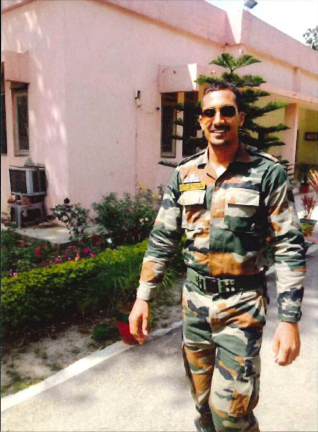The United States has charged Vikash Yadav, a former Indian intelligence officer, in connection with a failed plot to assassinate Gurpatwant Singh Pannun, a prominent Sikh separatist leader and U.S. citizen. Yadav, accused of orchestrating the murder-for-hire scheme from abroad, remains at large. The case, announced by U.S. federal prosecutors, is the latest in a series of tensions between India and Western nations over the issue of Sikh separatism.
Yadav's co-conspirator, Nikhil Gupta, was previously extradited to the U.S. and is currently facing charges. The indictment, unsealed on Thursday by the U.S. Attorney's Office for the Southern District of New York, sheds light on the assassination attempt that was ultimately foiled by undercover U.S. authorities. According to court records, Gupta had hired what he thought was a hitman to carry out the murder, but the assassin was an undercover agent working with the Drug Enforcement Administration (DEA). The plan was thwarted before it could be executed, and Gupta was arrested.
"The FBI will not tolerate acts of violence or efforts to retaliate against U.S. citizens exercising their First Amendment rights," said Christopher Wray, Director of the Federal Bureau of Investigation (FBI), in a statement. He emphasized the importance of protecting freedom of speech, especially when foreign governments attempt to suppress dissent within U.S. borders.
Pannun, the leader of Sikhs for Justice (SFJ), has long been a vocal advocate for the Khalistan movement, which seeks the creation of an independent Sikh state in India's Punjab region. India has designated SFJ as a banned organization and views Pannun as a national security threat. Pannun, however, continues to organize referendums and mobilize support for Khalistan from the Sikh diaspora.
The U.S. Justice Department's latest indictment adds to the growing international scrutiny surrounding India's efforts to silence Sikh separatists abroad. Tensions between India and Western nations, particularly Canada, have escalated since the 2023 assassination of Hardeep Singh Nijjar, another prominent Khalistan advocate, outside a Sikh temple in British Columbia. Canadian Prime Minister Justin Trudeau has accused India of being involved in Nijjar's killing, a charge India has strongly denied. Diplomatic relations between Canada and India have deteriorated since the incident, with both countries expelling diplomats in response.
This latest case involving Pannun has drawn parallels to the Canada situation, as both incidents point to allegations of transnational repression. Sikh organizations in the U.S., including the Sikh American Legal Defense and Education Fund (SALDEF), have expressed growing concerns about foreign governments targeting Sikh activists on American soil. In a statement, SALDEF called for "urgent action" to address such repression, highlighting the threat to free speech and political dissent in the U.S.
"The charges in this case demonstrate the U.S. government's commitment to protecting the life, liberty, and freedom of expression of its citizens at home and abroad," Sikhs for Justice said in a statement following Yadav's indictment. Pannun, who remains under protection, continues his advocacy work, organizing non-binding votes among the Sikh diaspora on the question of an independent Khalistan.
The indictment against Yadav comes as the U.S. and India maintain diplomatic discussions about the failed assassination plot. According to a statement by the U.S. State Department, an Indian investigative committee traveled to Washington earlier this week to discuss the case and meet with American officials. India, however, has denied involvement in the plot. It had previously labeled accusations that an Indian agent was behind the plan as "unwarranted" and "unsubstantiated."
This case has further complicated India's relationships with Western nations, particularly as countries like the U.S. and Canada seek to balance their strategic alliances with India against concerns over transnational repression. India's Prime Minister Narendra Modi, a Hindu nationalist leader, has been accused by Sikh groups of stifling dissent, both domestically and abroad. Modi's administration has consistently portrayed Sikh separatism as a major threat to national security, leading to an increase in tensions with countries that house large Sikh populations, such as the U.S. and Canada.
Meanwhile, U.S. officials have stressed that they will continue to hold accountable those responsible for such actions, regardless of their position or affiliations. "The Justice Department will be relentless in holding accountable any person - regardless of their position or proximity to power - who seeks to harm and silence American citizens," U.S. Attorney General Merrick Garland said in a statement. Garland underscored the seriousness of the charges against Yadav and Gupta, calling the plot a clear violation of U.S. sovereignty.






